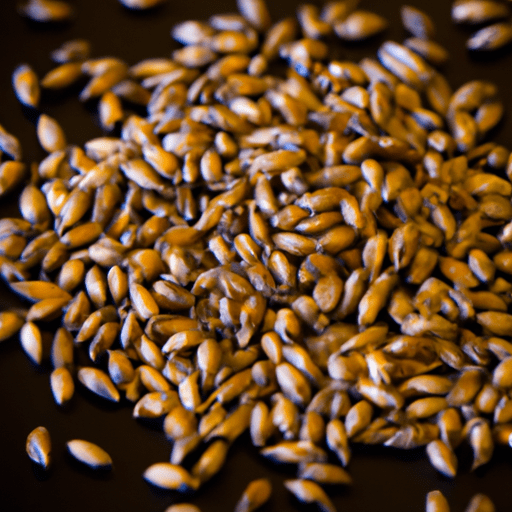Exploring the Delights of Ryeberries: A Nutritious and Versatile Grain
If you’re a food enthusiast looking to expand your pantry and explore new grains, ryeberries are a must-try! These versatile and nutritious grains have a rich history and offer a delightful addition to a variety of dishes. Let’s dive into the world of ryeberries and discover the many reasons why they’re worth incorporating into your cooking repertoire.
Unveiling the Taste and Texture
Ryeberries, also known as rye berries or rye seeds, are the whole, unprocessed kernels of the rye grain. With a chewy texture and a robust, slightly nutty flavor, they add a dynamic element to both sweet and savory dishes. When cooked, they maintain their shape and provide a satisfying bite compared to some other grains.
Culinary Applications of Ryeberries
Ryeberries are incredibly versatile and can be used in various culinary creations. Here are some popular ways to incorporate them into your cooking:
1. Salads and Pilafs
Ryeberries lend themselves well to hearty salads and pilafs. When cooked, they absorb the flavors of dressings, herbs, and spices, creating a wholesome and satisfying dish. Combine them with fresh vegetables, roasted nuts, and tangy dressings for a healthy and flavorful salad or use them as a base for a nourishing pilaf.
2. Soups and Stews
Due to their sturdy texture, ryeberries are ideal for adding substance to soups and stews. They soften slightly when simmered, releasing a subtle earthiness that enhances broths and stocks. Try them in hearty vegetable soups or rich, meaty stews to take your comfort food to the next level.
3. Breakfast Bowls and Porridges
Start your day off right by using ryeberries as a nutritious alternative to oats in your breakfast bowls and porridges. Cooked ryeberries can be combined with milk or plant-based alternatives, sweetened with honey or maple syrup, and topped with fresh fruits, nuts, and seeds for a wholesome and filling morning meal.
4. Bread and Baking
As an avid baker, you’ll be delighted to know that ryeberries can be ground into flour and used in bread and baking recipes. Rye flour adds a unique depth of flavor and a dense, hearty texture to bread, muffins, and cookies. Experiment with different ratios of rye flour to traditional flour to achieve a balance that suits your taste.
The Nutritional Powerhouses
Aside from their delicious taste and culinary versatility, ryeberries are a nutritional powerhouse. Packed with essential nutrients, these little grains offer several health benefits:
- Fiber: Ryeberries are an excellent source of dietary fiber, promoting healthy digestion and aiding in weight management.
- Protein: With a high protein content, ryeberries can be a valuable plant-based protein source for vegans and vegetarians.
- Vitamins and Minerals: Ryeberries are rich in vitamins B-complex and E, as well as minerals like iron, magnesium, and zinc, supporting overall well-being.
Fascinating History and Fun Facts
Ryeberries have a fascinating history that dates back thousands of years. Here are a few interesting tidbits about this ancient grain:
- Rye has been grown and consumed for over 4,000 years and is believed to have originated in Asia.
- Rye was one of the primary grains cultivated during the Middle Ages in Europe, especially in colder climates where other grains struggled to grow.
- Historical records show that rye was a staple food in many cultures, particularly in Eastern and Northern Europe, where it played a significant role in traditional cuisine.
With their delightful taste, versatility, and impressive nutritional profile, ryeberries are a grain worth exploring. From salads to soups, breakfast bowls to bread, these wholesome kernels bring heartiness and robust flavor to any dish. Whether you’re a seasoned home cook or an aspiring chef, adding ryeberries to your culinary repertoire will surely elevate your creations and open doors to a world of culinary possibilities.
So, why not give ryeberries a try? Your taste buds and your body will thank you for it!
Interesting Facts about Ryeberries:
Origin: Ryeberries, also known as rye kernels or whole rye grain, come from the rye plant (Secale cereale). Rye is believed to have originated in Asia Minor, specifically in present-day Turkey, and has been cultivated for more than 4,000 years.
Common Uses: Ryeberries have various culinary uses. They can be cooked and used as a side dish, added to soups and stews, or used as an ingredient in salads, pilafs, and stuffing. Ryeberries are also used to make rye bread and other baked goods.
Nutritional Benefits: Ryeberries are a nutrient-dense grain with several health benefits. They are a good source of dietary fiber, providing about 12 grams per 100 grams. Ryeberries are higher in fiber than many other grains, which can aid in digestion and help maintain healthy bowel movements. Additionally, they contain B-vitamins like thiamin, riboflavin, and niacin, as well as minerals such as copper, manganese, phosphorus, and magnesium.
Unique Properties: Ryeberries have a slightly nutty and earthy flavor. They have a chewy, firm texture even after cooking, making them a hearty addition to dishes. Ryeberries can absorb a significant amount of liquid during cooking, allowing them to pick up flavors from accompanying ingredients or sauces.
Historical Significance: Rye has played a prominent role in European history, particularly in Northern and Eastern Europe. Rye cultivation was suited to the colder and harsher climates of these regions and became a staple grain, offering a reliable food source. In many areas, rye bread was a dietary staple and held cultural significance. Today, ryebread continues to be an important part of traditional cuisines, such as Eastern European and Scandinavian cuisine.
These facts provide an overview of ryeberries, including their origin, common uses, nutritional benefits, and historical significance. Ryeberries are a versatile and nutritious ingredient that has a long history of culinary and cultural importance in various regions.




Use the share button below if you liked it.
It makes me smile, when I see it.